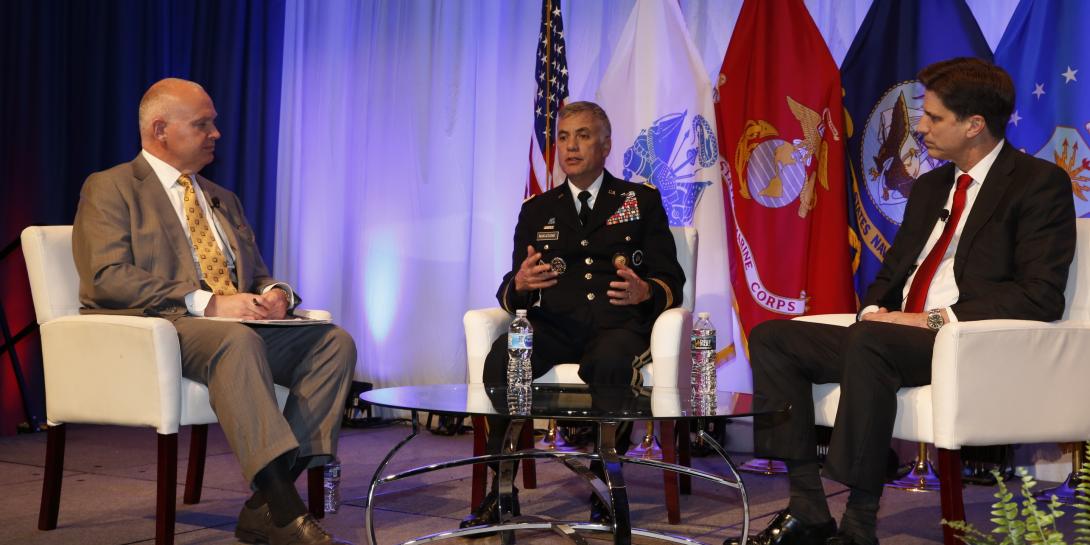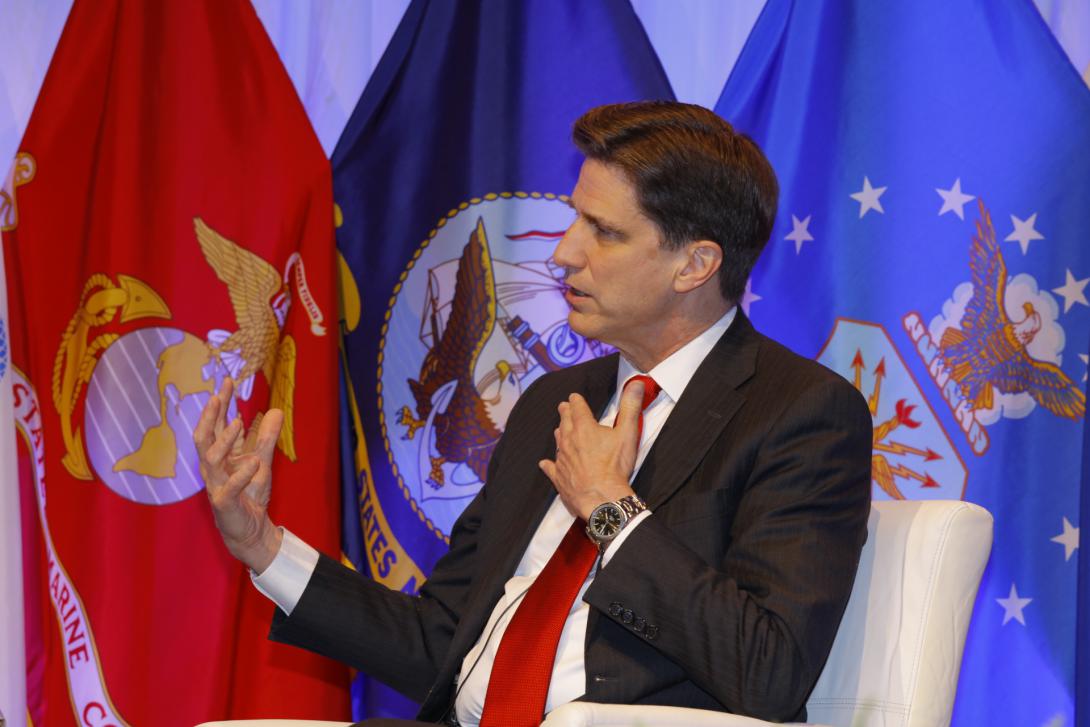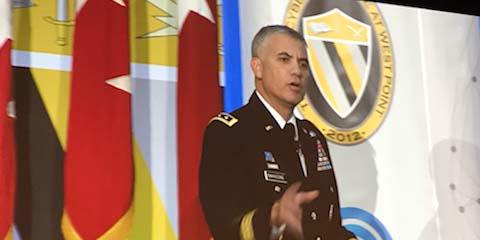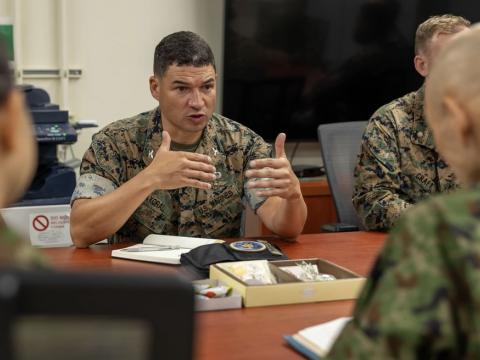Let's Talk About Data
Discussions about data may need to become as integral to military operational planning as kinetic weapons and physical targets, say two of the top cyber leaders in the U.S. Defense Department.
Gen. Paul Nakasone, USA, director of the National Security Agency and commander of U.S. Cyber Command, and Dana Deasy, Defense Department chief information officer, stressed the importance of data during a fireside chat on the first day of the AFCEA TechNet Cyber conference in Baltimore.
Gen. Nakasone indicated that data may need to considered during operational planning. “We have to ensure that we understand how we apply nonkinetic power in a way we haven’t done before. We’re very, very familiar with understanding the planning process that goes to kinetic operations. Nonkinetic operations, I would say, are sometimes as important,” he said. “When we look at our military planning process, we identify named areas of interest and targeted areas of interest. Data could well be one of those named areas of interest that we have to have to focus on, that we have to watch, that we have to have an understanding of how it’s changing.”
Deasy agreed, suggesting that data become a part of cadet training. He said he tells the secretaries of the military services to show him the curriculum that teaches young cadets about the importance of data and how it can be used offensively and defensively. “There’s a lot more we could be doing there,” Deasy added. “This is a really big opportunity. We need to start introducing new skill sets to people who are very young coming in.”
Dana Deasy, @DoD_CIO says we are on the verge of a data explosion and stresses the important of data to the military and intelligence mission.#AFCEATechNet #AFCEACyber
— George Seffers (@gseffers) May 14, 2019
At the same time, military leaders should ensure flag officers understand the importance of data as well, Deasy added. “At the opposite end, we need to make accessible these conversations that may be uncomfortable or non-natural with some flag officers around this topic. We have to attack both ends of the spectrum to create that education and awareness.”
“We didn’t think about that when I was going through the military schools, and now we need to. I think that’s an important piece,” Gen. Nakasone responded.
Deasy then reported that in the past three or four months, representatives from the various military services have come to him with “incredibly high energy on a multidomain mission problem” that centered around data. “I always ask what’s holding them back. It’s never technology. It is finding enough people who can actively engage in this conversation in a way that they can move things forward. That’s the challenge I think we face,” the CIO said.
Chat moderator Francis Rose of Government Matters asked Deasy whether the newly created Joint Artificial Intelligence Center (JAIC) could act as a model for helping solve the issue. The CIO responded that the JAIC “is going to be the place that really spotlights this problem with data” and that the center will help to foster those important conversations about data.
Dana Deasy, @DoD_CIO, and Gen. Nakasone discuss the need and ability of the Joint Artificial Intelligence Center, Defense Innovation Unit and Defense Digital Services to work with non-traditional companies to leverage innovation.#AFCEATechNet #AFCEACyber
— George Seffers (@gseffers) May 14, 2019
“If all you ever said to the Department of Defense leaders was [that] we need to focus on data management, people’s eyes would glaze over and roll to the backs of their heads,” Deasy said.
But if you can explain that accessing a particular type of data is creating specific problems and can explain why getting that data is difficult, people can better understand and tackle the problem. “They can’t solve a problem called We Need to Solve Data Management,” he added.







Comments